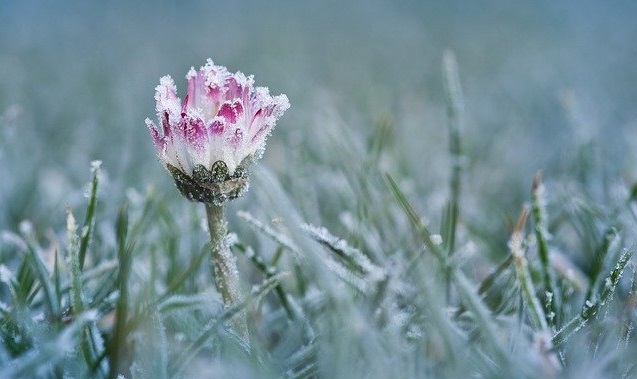While it's commonly believed that grass stops growing during the winter months due to cold weather, this is actually a misconception.
During mild spells, grass does actually continue growing in winter (albeit at a far slower rate than usual). As such, neglecting your lawn during this time can be a regrettable oversight.

Winter is Coming
Keeping your grass healthy and keeping moss at bay should be your top priorities in winter. (Promoting grass growth takes a back seat.)
During this time, it's vital to keep an eye on two things in particular:
- Nitrogen levels
- Iron levels
In order to keep your lawn as healthy as possible during the winter months, nitrogen levels need to be very low and iron levels need to be very high.
High nitrogen levels over winter can lead to lawn disease and leave the lawn susceptible to pests, while a deficiency in iron can be detrimental in terms of grass colour and turf strength.
How Can I Give My Lawn Enough Iron?
Many gardeners opt for lawn sand during the winter months as the go-to remedy for repelling moss and boosting lawn health; however, it's worth keeping an eye on the content of your lawn sand of choice.
It's not unusual for pre-made lawn sand mixtures to contain a pitiful amount of iron. As such, in order to provide enough iron to really benefit the grass, you will need to use a lot - unfortunately, this will also increase the nitrogen levels.
To avoid such a catch 22, it's worth either shopping around for lawn sand with a higher iron content than nitrogen, or making your own winter lawn fertiliser.
The latter option can be particularly handy and cost-effective, since you can make as much as you need and know exactly what has gone into making it, including the nutrient levels.
Winter Fertilisers
If you do happen to go down the ready-made route and shop for your winter lawn fertiliser, there are a couple of things to keep in mind.
When shopping for winter lawn fertiliser, the label should include three letters (N, P and K). These represent the chemical elements of nitrogen, phosphate and potassium.
A good winter grass fertiliser should include higher levels of phosphate and potassium to encourage root growth and strengthen the lawn under the soil.
Meanwhile, any decent winter lawn fertiliser should also have a lower level of nitrogen to discourage rapid grass growth during this time.
Professional Winter Lawn Treatment
If the prospect of treating your lawn during the winter seems somewhat daunting, why not give us a call and let us work our wintry magic?
At Lawn & Weed Expert, our winter lawn treatment is specifically designed to keep your lawn in tip-top condition throughout the cold season and banish lawn moss from whence it came.
Our team of lawn care specialists are fully equipped with knowledge, experience and tools for the task at hand, and are all ready, willing and able to give your lawn a healthy dose of TLC this winter.
Request a FREE Lawn Survey >